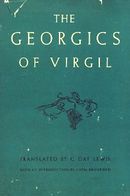Template:Pictorial-Islam-options: Difference between revisions
| [checked revision] | [checked revision] |
mNo edit summary |
mNo edit summary |
||
| Line 1: | Line 1: | ||
<noinclude>Also see: [[Template:Pictorial-Islam]]</noinclude><!-- HELP NOTES: Each option tag handles one random story --><choose> | <noinclude>Also see: [[Template:Pictorial-Islam]]</noinclude><!-- HELP NOTES: Each option tag handles one random story --><choose> | ||
<option weight="1">{{Pictorial-Islam|1=I. A. Ibrahim's "A Brief Illustrated Guide to Understanding Islam"|2=[[File:Brief Illustrated Guide.jpg|155px|link=A Brief Illustrated Guide to Understanding Islam]]|3=This 74-page publication written by I. A. Ibrahim is widely used by Muslims in their efforts to cast Islam in a favorable light, and to gain converts. It is well produced on glossy paper in a soft-cover booklet form, and attractively laid out, with many illustrations. It is available free of charge, can be read on its own dedicated website, and can also be freely downloaded as a pdf file. The campaign to spread Islam is evidently well funded. The real issue, though, is its message. Does it present mainstream Islam accurately? | |||
Chapter 1, “Some Evidence for the Truth of Islam” deals first, and at some length, with the so-called scientific miracles of the Qur'an. Muslims believe that the Qur'an is literally the words of Allah, and apologists now claim that among the revelations Prophet Muhammad received, there was scientific knowledge far in advance of his time. It makes a great deal out of the Qur'an’s occasional references to natural phenomena, when in reality these are either everyday observations, known from ancient times, or are scientifically incorrect. ([[A Brief Illustrated Guide to Understanding Islam|''read more'']])}}</option> | |||
Revision as of 22:25, 10 January 2014
Also see: Template:Pictorial-Islam
|
